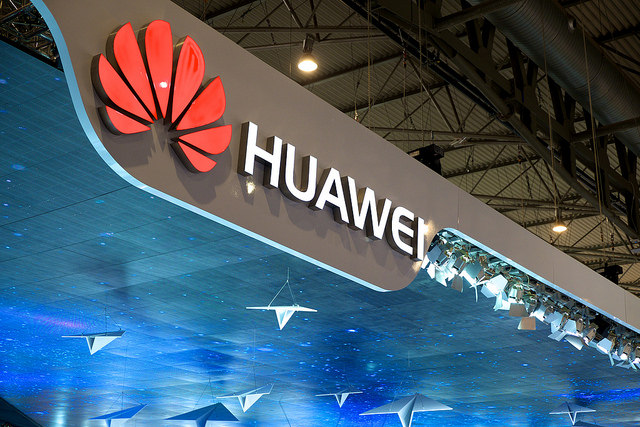
Huawei has provoked recurrent concerns and generated nearly incessant controversy in recent news cycles.
In the US, the potential for Huawei to dominate 5G network services was the implicit justification for the recent presidential order blocking Broadcomm’s attempted takeover of Qualcomm, which was seen as a risk to US national security.
Huawei’s quest for leadership in 5G was also an impetus for the Trump administration’s controversial proposal for a US government ‘moon shot’ to build secure 5G as a ‘single, inherently protected, information transportation superhighway’ that could serve as the ‘Eisenhower national highway system for the information age’.
In Australia, concerns about Huawei’s potential involvement in building 5G networks have also provoked controversy, along with strong US resistance to the idea.
To date, Huawei’s rapid emergence as a global powerhouse in telecommunications has been striking. Already the world’s largest telecom equipment manufacturer, as of 2017 Huawei surpassed Apple to become the world’s second-largest smartphone brand.
Huawei is believed to be on track to lead the ‘race’ to develop and deploy 5G worldwide. Not only is it dominant in China, but it’s also pursuing partnerships with telecommunications enterprises across Asia and Europe. Huawei plays an increasing role in creating technical standards for 5G.
Its success has provoked a powerful backlash in the US and concerns in Australia. At times, fears about Huawei go well beyond the obvious or known indicators of risk. For instance, US Senator Chuck Grassley of Iowa has declared, ‘I can’t pronounce their name, but it starts with an H and ends with a W-E-I. Whenever they’re involved, it scares the devil out of me.’ (Perhaps the activities of Huawei’s rival, ZTE, would receive more attention if its name were similarly ‘unpronounceable’.)
Despite and beyond a degree of hype, the concerns about Huawei that have spurred these controversies are legitimate. Huawei isn’t unique in its lack of transparency regarding likely linkages to the Chinese Communist Party (CCP) and People’s Liberation Army (PLA). Furthermore, Huawei merits further scrutiny insofar as it’s poised to pioneer the construction of networks that promise transformative connectivity—and that could be leveraged to advance Beijing’s reach and influence globally in the process.
Huawei’s founder, Ren Zhengfei (任正非), enlisted as a soldier in the PLA Engineering Corps in 1974. After retiring from the military in 1983, he worked for a state-owned enterprise, and then founded Huawei in 1987. Throughout his tenure at Huawei, Ren has remained quite secretive, and certain aspects of his career trajectory are difficult to confirm, but Huawei appears to have maintained close, though often opaque, connections to elements of the PLA across much of its history.
In addition, there have been rumours and reports that Huawei’s former chairwoman, Sun Yafang, once worked with the Ministry of State Security, and later leveraged those connections to enable the company to endure financial difficulties. The lack of candour about the biographies and backgrounds of such prominent leaders within Huawei has deepened suspicions.
A 2012 investigation by the US House of Representatives Permanent Select Committee on Intelligence obtained internal Huawei documentation from a former employee that reportedly demonstrated that Huawei ‘provides special network services to an entity the employee believes to be an elite cyber-warfare unit within the PLA’.
Huawei is probably still engaged in defence-related research and development. The company has received support and participated in projects to advance 5G through the 863 Program, which is linked to dual-use technological developments that often support military modernisation. Huawei also remains engaged with partners from the Chinese defence industry in initiatives that may advance China’s national strategy of military–civil fusion. For instance, in April 2017, Huawei signed a strategic cooperation agreement involving military–civil fusion communications infrastructure in Yunnan.
At the same time, Huawei has clearly emerged as a ‘national champion’. In recent years, it has received robust support from the Chinese government, which has supported and celebrated its emergence as a national flagship venture and global powerhouse. Huawei will be a key player in such iconic initiatives as the ‘Digital Silk Road’, advancing connectivity that could boost China’s competitiveness.
It can thus be difficult to differentiate Huawei’s quest for commercial advantage from China’s pursuit of strategic objectives. In the future, Huawei’s decisive market share and potential dominance globally could be exploited to advance both corporate and national government interests, at a time when the CCP is seeking to harness and leverage the dynamism of China’s tech sector.
Correction, April 2019: A prior version of this article had stated that Ren Zhengfei ‘is known to have served as a former director of the PLA General Staff Department’s Information Engineering Academy. In this capacity, he was associated with the former 3PLA, which was responsible for signals intelligence and cyber espionage.’ The source that was linked to the words ‘is known’ is a 2005 report published by the RAND Corporation that had included this assessment; however, there is no publicly available information that confirms the claim made in the report at that time. The ninth paragraph of this article has been amended to remove the unsubstantiated assertion. The author would like to thank Matt Schrader for bringing this issue to her attention.

